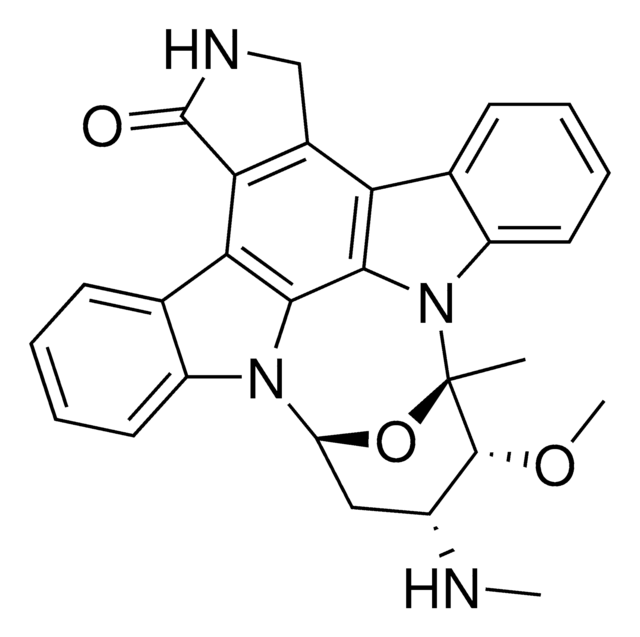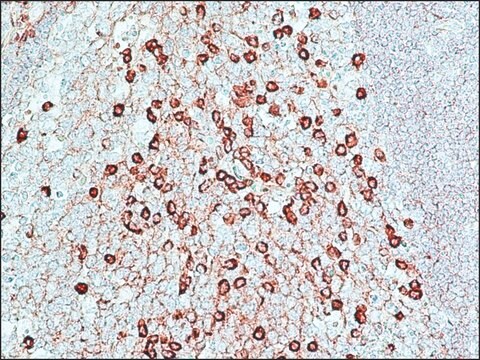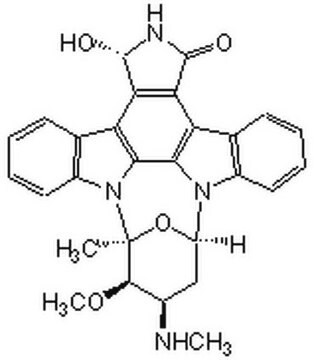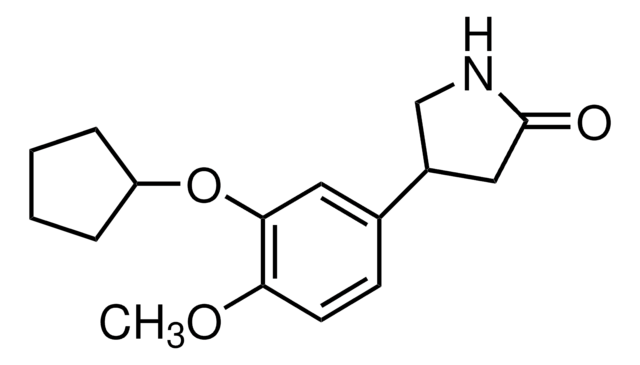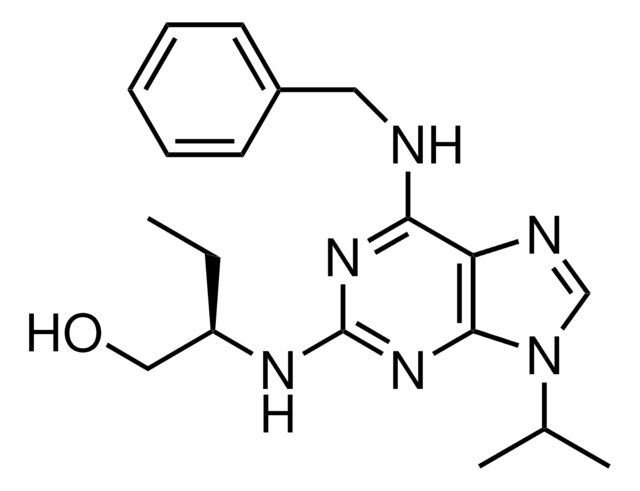S4400
Staurosporine
from Streptomyces sp., ≥98% (HPLC), film, protein kinase inhibitor
Synonym(s):
Staurosporine, Antibiotic AM-2282
About This Item
Recommended Products
Product Name
Staurosporine from Streptomyces sp., ≥98% (HPLC), film
biological source
Streptomyces sp.
Quality Level
Assay
≥98% (HPLC)
form
film
mp
288-291 °C
solubility
DMSO: soluble
H2O: insoluble
ethanol: soluble
methanol: soluble
antibiotic activity spectrum
neoplastics
Mode of action
enzyme | inhibits
storage temp.
2-8°C
SMILES string
CN[C@@H]1C[C@@H]2O[C@@](C)([C@@H]1OC)n3c4ccccc4c5c6CNC(=O)c6c7c8ccccc8n2c7c35
InChI
1S/C28H26N4O3/c1-28-26(34-3)17(29-2)12-20(35-28)31-18-10-6-4-8-14(18)22-23-16(13-30-27(23)33)21-15-9-5-7-11-19(15)32(28)25(21)24(22)31/h4-11,17,20,26,29H,12-13H2,1-3H3,(H,30,33)/t17-,20?,26-,28+/m1/s1
InChI key
HKSZLNNOFSGOKW-ZGQXJOJZSA-N
Looking for similar products? Visit Product Comparison Guide
General description
Application
Biochem/physiol Actions
Features and Benefits
Signal Word
Danger
Hazard Statements
Precautionary Statements
Hazard Classifications
Aquatic Chronic 4 - Carc. 1B - Muta. 1B - Repr. 2
Storage Class Code
6.1C - Combustible acute toxic Cat.3 / toxic compounds or compounds which causing chronic effects
WGK
WGK 3
Flash Point(F)
Not applicable
Flash Point(C)
Not applicable
Personal Protective Equipment
Choose from one of the most recent versions:
Certificates of Analysis (COA)
Don't see the Right Version?
If you require a particular version, you can look up a specific certificate by the Lot or Batch number.
Already Own This Product?
Find documentation for the products that you have recently purchased in the Document Library.
Customers Also Viewed
Articles
Protein-based drug transporters are found in most tissues including liver, kidney, intestine, and brain. These transporters are particularly important in cancer treatment and multi-drug resistance research. Understanding the specific mechanisms of tumor cell transporters is becoming an essential aspect of chemotherapeutic drug design.
Our team of scientists has experience in all areas of research including Life Science, Material Science, Chemical Synthesis, Chromatography, Analytical and many others.
Contact Technical Service